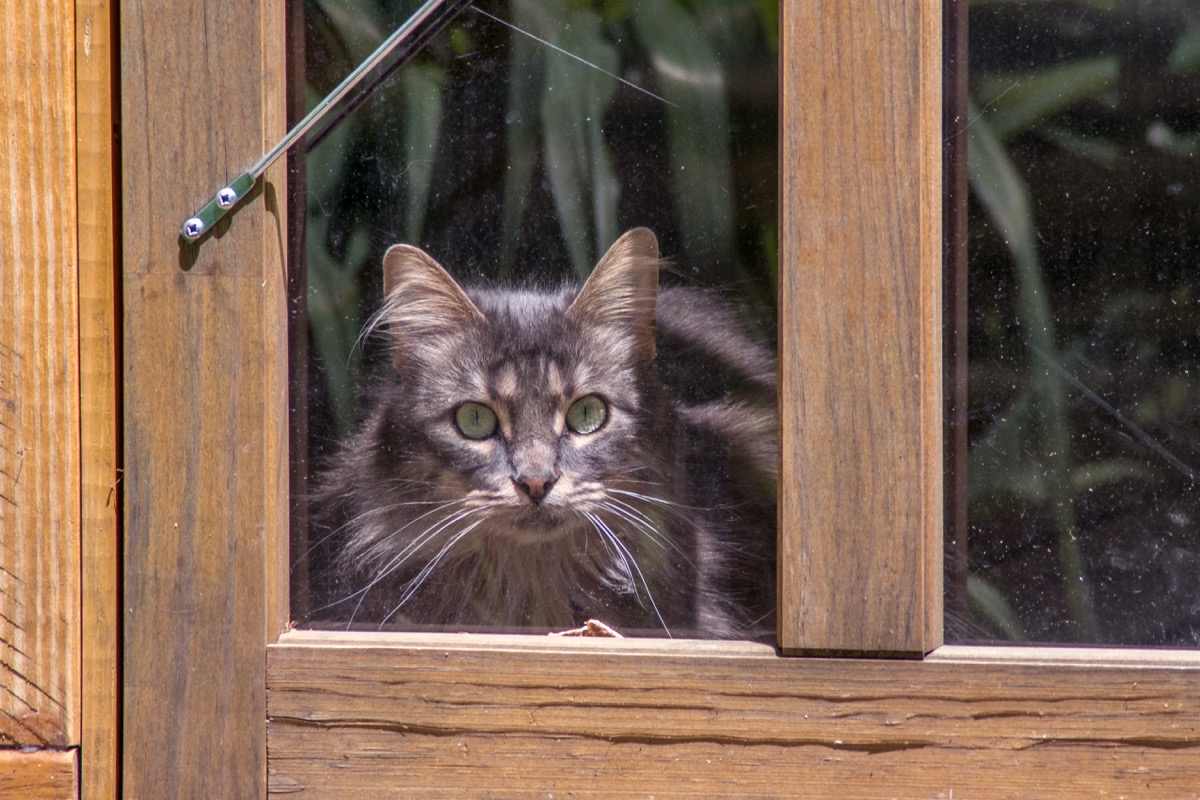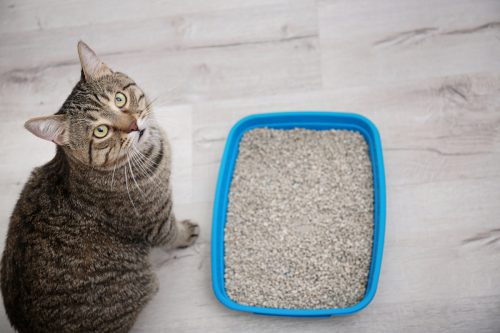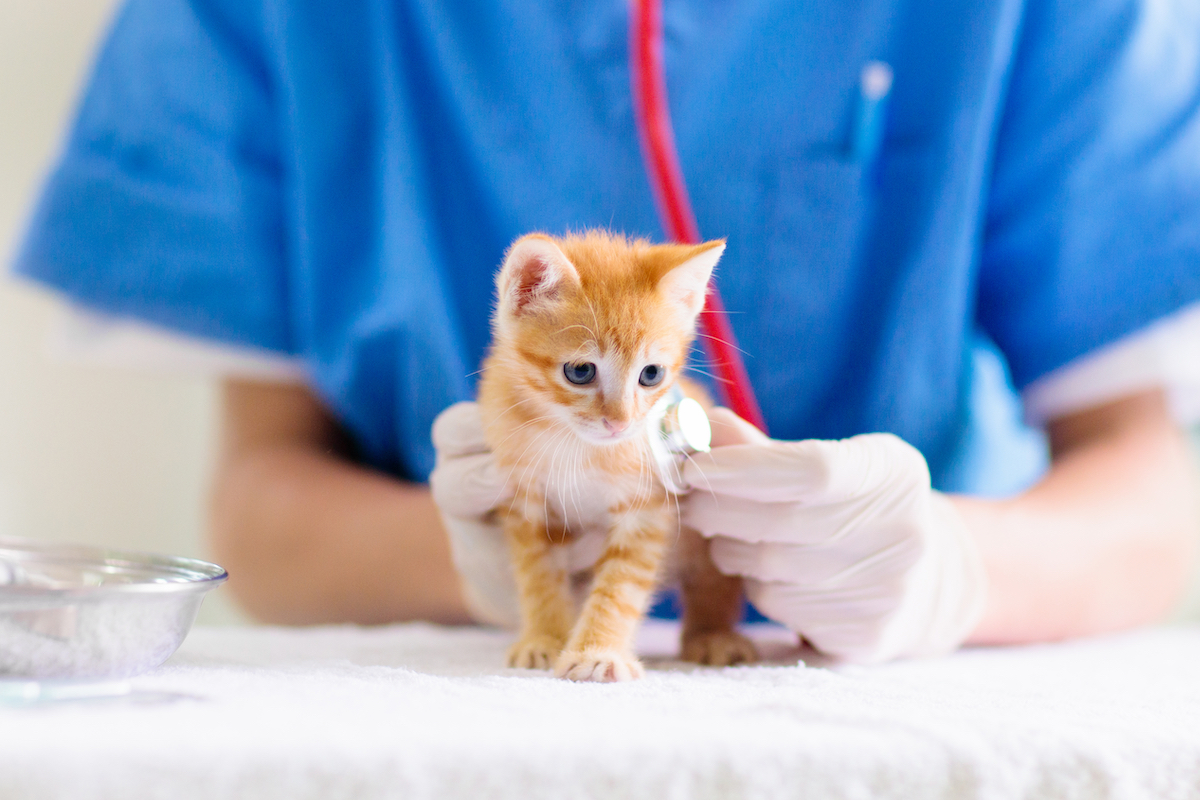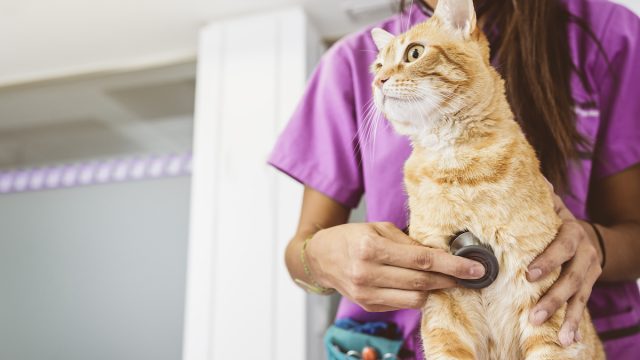5 Secrets Veterinarians Aren't Telling You About Your Cat
There are a few things that could greatly improve your pet's life, and you may not even know.
Cats are mysterious creatures. They meow for food then don't touch it, sleep all day then run zoomies at 3 am, and roll over for belly rubs then attack your hand. However, while some of your cat's behaviors may be the subject of confusion, their health and wellness shouldn't be. That's why it's important to bring them to the vet once a year for a check-up so you can get the most accurate and up-to-date information about keeping your pet healthy. When you're there, there are a few things they might be hesitant to tell you. That's why we consulted veterinarians to find out the biggest things they wish people knew about their cats. Read on for these important tips.
READ THIS NEXT: The Biggest Mistake New Pet Owners Make, Vets Say.
1
Your cat really should be eating wet food.

We get it: feeding your cat dry food is easier (and cheaper!). Unfortunately, it's not best for your pet. "I recommend moist or canned food for all cats," says Jamie Whittenburg, DVM, lead veterinarian at Cat World and director of Kingsgate Animal Hospital in Texas. "First, by definition, kibble is high in carbohydrates, and cats do not need a high-carbohydrate diet. Second, cats are desert animals and do not stay adequately hydrated much of the time." A moist diet will keep your cat hydrated, in turn protecting their kidneys.
2
Your cat shouldn't go outside.

Sure, your cat may be intrigued by the outdoors, but that doesn't mean they should interact with it. "Cats should be strictly indoor pets; if never allowed outside, they will be much more content inside," says Whittenburg. "Cats that live exclusively indoors have an average lifespan of 10 to 20 years, whereas outdoor cats have an average lifespan of only two to five years."
Outdoor dangers include predators, ill-meaning humans, cars, transmissible diseases, parasites, and inclement weather, Whittenburg adds. Outfit a windowsill with a cozy cat bed so your kitty can watch what's going on without leaving the house.
READ THIS NEXT: The No. 1 Sign Your Cat Has a Cold, According to Vets.
3
You should play with your cat more.

No, tossing a ball to your cat every few days isn't enough mental or physical entertainment for your pet. Carol Osborne, DVM, a veterinarian at Chagrin Falls Veterinary Center & Pet Clinic in Ohio, tells PetMD that a good goal is four 10-minute play sessions a day. "Constructive playtime for a cat is much-needed exercise," Osbourne says. "One hour of play increases a cat's healthy lifespan by four hours. It often improves cats' mental health, too, lessening anxiety and destructive behavior." Those aforementioned nighttime zoomies might also be squashed with just a few extra minutes of play.
4
Your litter box could use some TLC.

As a cat owner, you'll want to prevent litter box issues at all costs. And the easiest way to do that is to maintain proper litter box hygiene. First, you'll want to have one litter box for each cat in your household. Then, put the box (or boxes) in a private spot away from your pet's food and water, as well as noisy or heat-radiating appliances, notes the Humane Society. Keep the litter less than two inches deep, and try to scoop it at least once a day. It might seem like a lot of upkeep, but it'll prevent your cat from going outside the box.
For more pet advice delivered straight to your inbox, sign up for our daily newsletter.
5
Your cat probably needs to visit the vet more often.

If your cat seems healthy, it might be tempting to skip their annual vet appointment. However, you don't need us to tell you that's a bad idea. "Dogs are taken to a veterinarian more than twice as often as cats," Whittenburg notes. "The reasons behind this disparity vary, but cats can be more difficult to transport, are more easily stressed by the experience, and also hide their illnesses better than dogs." Unfortunately, these are not excuses. If you have concerns about getting your cat to the vet, contact the office. They can use their professional expertise to suggest the best option for your cat.






















